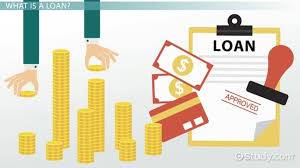Managing Debt: Strategies to Pay Off Credit Cards and Loans
Debt can feel overwhelming, especially when balances seem to grow faster than you can pay them off. Whether it's credit cards, student loans, or personal loans, tackling debt requires strategy, consistency, and patience. The good news? With the right approach, you can pay off your debts and regain financial freedom. Here are some proven strategies to help you manage and eliminate debt efficiently.
1. Assess Your Debt Situation
Before you can start eliminating debt, it's important to get a clear picture of what you owe. List all your debts, including credit cards, personal loans, auto loans, and student loans. Include the total balance, interest rates, and minimum monthly payments. This will give you an overview of where you stand and help you decide which debts to tackle first.
2. Use the Debt Snowball Method
The debt snowball method is one of the most popular debt repayment strategies. It focuses on paying off your smallest debts first, while making minimum payments on larger debts. Once the smallest debt is paid off, you move to the next smallest, creating a snowball effect.
Why it works:
Psychologically, paying off small debts quickly provides motivation and a sense of accomplishment. As you eliminate debts one by one, you gain momentum, making it easier to tackle larger ones.
3. Try the Debt Avalanche Method
The debt avalanche method focuses on paying off high interest debts first. In this approach, you make minimum payments on all your debts but put any extra money toward the debt with the highest interest rate.
Why it works:
This method minimizes the amount of interest you pay over time, which can save you money in the long run. It may take longer to see progress compared to the debt snowball method, but the savings can be substantial.
4. Consolidate Your Debts
Debt consolidation involves combining multiple debts into a single loan or credit card with a lower interest rate. This simplifies your payments, as you'll have only one monthly payment to manage, and it can reduce your interest charges.
How to do it:
Consider transferring your credit card balances to a card with a 0% introductory APR (balance transfer card), or take out a personal loan with a lower interest rate to pay off your high interest debts.
Caution:
Debt consolidation works only if you stop adding new debt. Avoid using your paid off credit cards unless absolutely necessary.
5. Create a Realistic Budget
One of the keys to managing debt is controlling your spending. Create a budget that allocates money toward debt repayment while covering essential living expenses. Be realistic about what you can afford to pay each month.
Tips to stick to a budget:
Cut unnecessary expenses, like dining out or streaming services.
Set a specific amount aside for discretionary spending.
Automate bill payments to ensure you never miss a due date.
6. Pay More Than the Minimum
Credit card companies often set low minimum payments, which makes it easier for debt to pile up. Paying just the minimum can keep you in debt for years, especially if you’re dealing with high interest rates.
Solution:
Whenever possible, pay more than the minimum on your debts. Even an extra $50 or $100 each month can make a huge difference in how quickly you pay off your balances and reduce the total interest paid.
7. Negotiate with Creditors
If you're struggling to make payments, consider reaching out to your creditors to negotiate better terms. Some lenders may offer lower interest rates, reduced minimum payments, or even settle for a lumpsum payment that’s less than what you owe.
How to negotiate:
Be honest about your financial situation.
Ask if they can offer any hardship programs or payment plans.
Consider enlisting the help of a debt counselor to negotiate on your behalf.
8. Avoid Taking on New Debt
While paying off existing debt, it’s crucial to avoid accumulating more. Stay away from using credit cards for new purchases and limit borrowing until your current debts are under control.
Tips to avoid new debt:
Stick to a cash or debit card only system.
Build an emergency fund to handle unexpected expenses, so you don’t rely on credit.
Limit impulse purchases by waiting 24 hours before making a buying decision.
9. Seek Professional Help if Needed
If your debt feels unmanageable, seeking help from a nonprofit credit counseling agency might be a good idea. These organizations offer free or low-cost services to help you create a budget, negotiate with creditors, and develop a debt repayment plan.
What they offer:
Debt management plans (DMPs)
Financial education resources
Negotiations with creditors on your behalf
10. Stay Committed and Celebrate Small Wins
Managing debt can be a long journey, but it’s important to stay committed to your plan. Celebrate small victories, such as paying off a credit card or reducing a loan balance, to keep yourself motivated.
Stay focused:
Debt repayment takes time, but each step you take brings you closer to financial freedom. Stay the course and remember why you’re working to become debt free.




No comments yet
Be the first to share your thoughts!